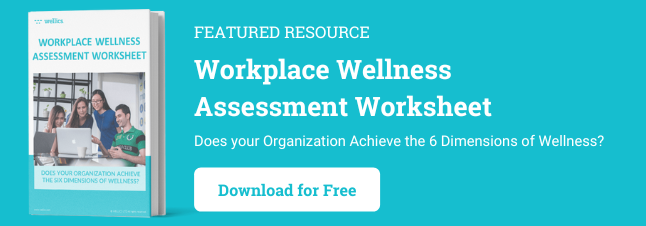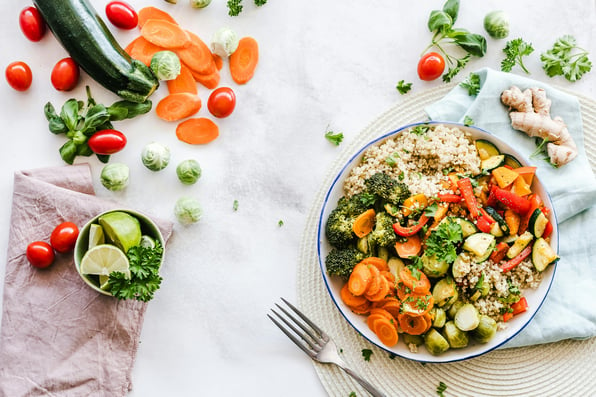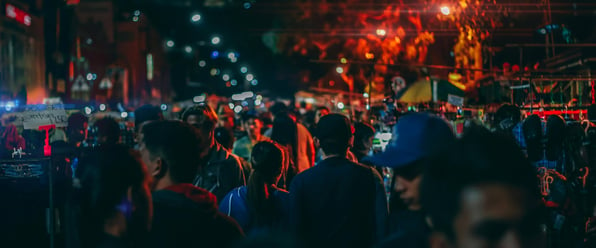Carbohydrates comprise a comprehensive group of naturally occurring substances consisting of one or more units of simple sugars. The term “carbohydrate” comes from the fact that it consists of carbon, hydrogen, and oxygen in the water ratio.
Carbohydrates are otherwise called saccharides from the word saccharo, which stands for “sugar” in Greek. Chemically speaking, according to the number of units carbohydrates consist of, they are classified as monosaccharides, disaccharides, oligosaccharides, and polysaccharides.
Dietary carbohydrates are the primary energy source for the human body and include sugars, starch, and non-starch polysaccharides (NSPs) (dietary fiber). These are found in foods of any plant origin, such as fruits, vegetables, grains, legumes, whole grains, honey, sugar, milk, and milk products.
Foods such as cereals (i.e., corn, rice, rye, barley) and roots (potatoes) contain mainly starch. According to WHO (2003), “free sugars" refer to "all monosaccharides and disaccharides added to foods by the manufacturer, cook or consumer, plus the sugars that are naturally present in honey, syrups, and fruit juices.”
The most widely consumed disaccharide is table sugar. This category does not include natural sugar in vegetables, fruits, and milk. In many cases, free sugars are also called added sugars. Dietary fiber (or non-starch polysaccharides) is the indigestible portion of foods derived from plants.
Sugar and Sleep
There is a substantial body of evidence to indicate the role of carbohydrate intake on sleep quality. Both high-carbohydrate (HC) and low-carbohydrate (LC) diets are associated with changes in sleep architecture, such as duration and quality. However, the type of carbohydrate seems to be more important than its quantity in mediating this association!
More specifically, sugar and other non-sugar/ non-fiber carbohydrates have been associated with poor sleep quality. Higher intake of processed and free-sugar-rich foods (i.e., sugar-sweetened beverages, confectionery foods, energy drinks) has been associated with worse sleep features.
Studies observing the dietary and sleeping habits of children, adolescents, or adults have shown that lower sleep duration and poor sleep quality are associated with a high frequency of energy drinks, sugar-sweetened beverages, and confectionery. However, energy drinks contain a wide range of caffeine (50−500 mg per can or bottle) and various stimulant substances such as taurine and herbal derivatives, which are known for their negative effect on sleep.
On the other hand, it is also established that insufficient sleep leads to increased consumption of the foods above. So, which came first, the chicken or the egg? In other words, do people eat more sugar due to poor sleep or the other way around?
A study on adults testing different foods and sleep patterns showed that sugar intake is associated with lighter, less restorative sleep with more arousals, among other foods. This result was found regardless of the timing of the sugar consumption throughout the day.
However, the consumption of fruits has been shown to affect sleep quality positively. Specifically, the consumption of 2 kiwifruits one hour before bedtime appeared to promote the sleep of individuals with self-reported sleep disorders. Similarly, in other studies, the consumption of specific cherry cultivars has resulted in sleep improvements in certain age groups.
In another study, it was found that increased nocturnal energy intake was associated with increased sleep latency (i.e., the time it takes a person to fall asleep after the lights are out) and decreased sleep efficiency. Confectionary, sugar-sweetened beverages and energy drinks are energy-dense foods (they contain a lot of energy per weight or volume), while this is not the case with fruits.
In addition, fruits contain fiber, the consumption of which has been shown to affect sleep favorably.
Takeaways
- Eating a lot of sugar in the form of confectionery, sugar-sweetened beverages, or energy drinks regardless of the consumption timing in the day can result in poor sleep.
- A big dinner or a meal right before sleep, regardless of sugar content, can also affect sleep quality.
- A moderate meal with foods containing sugar can also cause poor sleep.
- However, intake of sugar in the form of fruits can have a beneficial effect on your sleep, even when consumed before bed!
Nutrition, Sleep, and Wellness (Bonus Tip)
Nutrition and Sleep are two of the five key factors that affect well-being. Being cautious about which foods contain sugar and making informed dinner choices as described above are two simple tactics to leverage a positive effect on your health.
Your quality of life is the result of your decisions, and taking a small step at a time is what will lead you to a better, longer life.
Originally published March 17, 2022 - 8:27 AM, updated September 3, 2024
Sources
- Brondel L, Romer MA, Nougues PM, Touyarou P, Davenne D. Acute partial sleep deprivation increases food intake in healthy men. Am J Clin Nutr 2010;91:1550–9.
- Chaput JP, Tremblay MS, Katzmarzyk PT, Fogelholm M, Hu G, Maher C, et al. Sleep patterns and sugar-sweetened beverage consumption among children from around the world. Publ Health Nutr 2018;21(13):2385e93.
- Crispim CA, Zimberg IZ, dos Reis BG, Diniz RM, Tufik S, de Mello MT. Relationship between Food Intake and Sleep Pattern in Healthy Individuals. Journal of Clinical Sleep Medicine 2011;7(6):659 - 664.
- Cummings, J.H., and Stephen, A.M. (2007). Carbohydrate terminology and classification. European journal of clinical nutrition 61 (suppl 1), S5-S18.
- Howatson G, Bell PG, Tallent J, Middleton B, McHugh MP, Ellis J. Effect of tart cherry juice (Prunus cerasus) on melatonin levels and enhanced sleep quality. Eur J Nutr 2012;51:909–16.
- Hugues Sampasa-Kanyinga, Hayley A. Hamilton, Jean-Philippe Chaput. Sleep duration and consumption of sugar-sweetened beverages and energy drinks among adolescents. Nutrition 2018;48:77-81.
- Justyna Godos, Giuseppe Grosso, Sabrina Castellano, Fabio Galvano, Filippo Caraci, Raffaele Ferri. Association between diet and sleep quality: A systematic review. Sleep Medicine Reviews 57 (2021) 101430.
- Katagiri R, Asakura K, Kobayashi S, Suga H, Sasaki S and the Three-generation Study of Women on Diets and Health Study Group. Low Intake of Vegetables, High Intake of Confectionary, and Unhealthy Eating Habits are Associated with Poor Sleep Quality among Middle-aged Female Japanese Workers. J Occup Health 2014; 56: 359–368
- Khowala S, Verma D, Banik SP. Carbohydrates. In book: Biomolecules (Introduction, Structure, and Functions). Edition: 6th. Publisher: National Science Digital Library. Editors: Dr. Mamta Kankara, Dr. N. C. Sharma, Prof. Prakash C. Sharma, Dr. B.L. Somani, Dr. P.C. Misra.
- Leong SY, Duque SM, Abduh SBM, Oey I. Chapter 6: Carbohydrates. In: Innovative Thermal and Non-Thermal Processing, Bioaccessibility and Bioavailability of Nutrients and Bioactive Compounds. Woodhead Publishing Series in Food Science, Technology and Nutrition 2019;171-206.
- Lin HH, Tsai PS, Fang SC, Liu JF. Effect of kiwifruit consumption on sleep quality in adults with sleep problems. Asia Pac J Clin Nutr 2011;20:169–74.
- Marie-Pierre St-Onge, Anja Mikic, and Cara E Pietrolungo. Effects of Diet on Sleep Quality. Adv Nutr 2016;7:938–49.
- Markwald RR, Melanson EL, Smith MR, et al. Impact of insufficient sleep on total daily energy expenditure, food intake, and weight gain. Proc Natl Acad Sci U S A 2013;110:5695–700.
- Morrissey B, Allender S, Strugnell C. Dietary and activity factors influence poor sleep and the sleep-obesity nexus among children. Int J Environ Res Publ Health 2019;16(10).
- Nedeltcheva AV, Kilkus JM, Imperial J, Kasza K, Schoeller DA, Penev PD. Sleep curtailment is accompanied by an increased intake of calories from snacks. Am J Clin Nutr 2009;89:126–33.
- Pigeon WR, Carr M, Gorman C, Perlis ML. Effects of a tart cherry juice beverage on the sleep of older adults with insomnia: a pilot study. J Med Food 2010;13:579–83.
- Garrido M, Paredes SD, Cubero J, Lozano M, Toribio-Delgado AF, Munoz JL, Reiter RJ, Barriga C, Rodriguez AB. Jerte Valley cherry-enriched diets improve nocturnal rest and increase 6-sulfatoxymelatonin and total antioxidant capacity in the urine of middle-aged and elderly humans. J Gerontol A Biol Sci Med Sci 2010;65:909–14.
- St-Onge MP, Roberts AL, Chen J, et al. Short sleep duration increases energy intakes but does not change energy expenditure in normal-weight individuals. Am J Clin Nutr 2011;94:410–6.
- St-Onge MP, Roberts A, Shechter A, Choudhury AR. Fiber and saturated fat are associated with sleep arousals and slow-wave sleep. J. Clin. Sleep Med. 2016;12:19–24.
- Sarah A. Alahmary, Sakinah A. Alduhaylib, Hibah A. Alkawii, Mashail M. Olwani, Reem A. Shablan, Hala M. Ayoub, Tunny S. Purayidathil, Omar I. Abuzaid and Rabie Y. Khattab. Relationship Between Added Sugar Intake and Sleep Quality Among University Students: A Cross-sectional Study. American Journal of Lifestyle Medicine 16(1):155982761987047
- WHO (2003). Diet, Nutrition and the Prevention of Chronic Diseases. Report of a Joint WHO/FAO Expert Consultation (WHO Technical Report Series 916) World Health Organization: Geneva.










